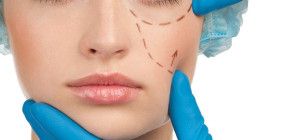 If you’re experiencing painful, post-partum acne, you’re not alone. Dealing with acne following the birth of your newborn adds yet another stress to your already full plate. This time should be nothing but joyful (if not a little overwhelming as you try to navigate the new world of motherhood) and complexion concerns should be clear off your radar. Unfortunately, biology can make this a bit complicated—but there’s still hope nonetheless. This Q&A style post offers some valuable insights for anyone struggling with post-partum acne. Read on to learn how you can stop worrying about breakouts, and start focusing on your newborn baby.
If you’re experiencing painful, post-partum acne, you’re not alone. Dealing with acne following the birth of your newborn adds yet another stress to your already full plate. This time should be nothing but joyful (if not a little overwhelming as you try to navigate the new world of motherhood) and complexion concerns should be clear off your radar. Unfortunately, biology can make this a bit complicated—but there’s still hope nonetheless. This Q&A style post offers some valuable insights for anyone struggling with post-partum acne. Read on to learn how you can stop worrying about breakouts, and start focusing on your newborn baby.
What is post-partum acne?
Post-partum acne refers to the sudden appearance (or reappearance) of pimples, whiteheads, blackheads and cysts following the birth of a child. Although these blemishes can form in many shapes and sizes, post-partum acne is most commonly cystic—meaning the bumps are red, inflamed, deep and painful. It usually occurs on the face, but can present itself anywhere on the body, including arms, back, chest, neck, ears and more.
What causes post-partum acne?
Post-partum acne narrows down to one thing: hormones. Women’s skin in particular is incredibly sensitive to sudden fluctuations of hormone levels in the bloodstream, although hormonal acne affects men, too. It’s these changes we can blame for the acne commonly experienced during the development of puberty, as well as any flare ups you might have experienced at the beginning of your pregnancy. Some women mistakenly believe it’s their birth control causing acne, but more often than not birth control actually regulates estrogen levels and makes hormonal acne more manageable.
To make matters worse, acne caused by hormones is compounded by a number of lifestyle factors which typically apply to new moms: stress, lack of sleep, and poor diet.
- Learning what to do, how to act, when to feed, and how to swaddle are just a few challenges which new moms face. Add these hurdles to stubborn acne that just won’t stop, and chances are you’ve got one stressed out mom. Stress will make acne worse by adding to the list of hormones circulating in the bloodstream, such as a spike in cortisol, which will then try to exit the body through pore secretion, creating breakouts.
- Feeding around the clock and caring for newborns in the wee hours of night seriously detracts from the quality of sleep. Our body uses the time while asleep to increase blood flow and circulate oxygen to the skin. Without ample rest, the skin is deprived of its ability to regenerate and heal itself, which makes curing post-partum acne all the more difficult.
- Eating habits are usually affected during and post pregnancy, and normally not for the better. It’s true that some women diligently keep a clean diet, but more frequently the constant cravings, constricted time restraints, and increased calorie demand while breast feeding lead to poor nutritional choices. An above-average intake of high-glycemic foods can worsen the oil production in skin’s sebum cells thereby exacerbating hormonal post-partum acne.
How to treat post-partum acne?
While breastfeeding, women should always consult a doctor regarding the safety of their acne medicines. Generally speaking, some common words of wisdom include:
- Eat more minerals, vitamins, and antioxidants found within a vegetable-rich diet to reap their many skincare benefits. Also, try to incorporate more Omega-3 fatty acids in your meals because they too can work wonders on skin.
- Although sleep will be something hard to catch up on, stress can be managed through relaxation and mindfulness techniques. For overwhelmed mothers who aren’t sure how to get a moment of head space, consider downloading helpful apps such as Calm for a guided meditation.
- Try gentle, over-the-counter products (OTC) before implementing strong, chemical prescriptions. Switch out your facewash with something more effective for treating dry, post-partum skin in addition to a pore-tightening moisturizer to keep dirt out. Again, it’s always recommended to speak to your skincare professional before introducing new ingredients near your newborn, but generally Neutrogena’s products are considered safe for OTC use.
Post-partum acne can be painful and unsightly, but it won’t last forever. What will last forever is the incredible bond between you and your child, so be sure to enjoy this unique time to the fullest while you can—and free yourself from unnecessary skin self-consciousness. Your baby will love you no matter what.







